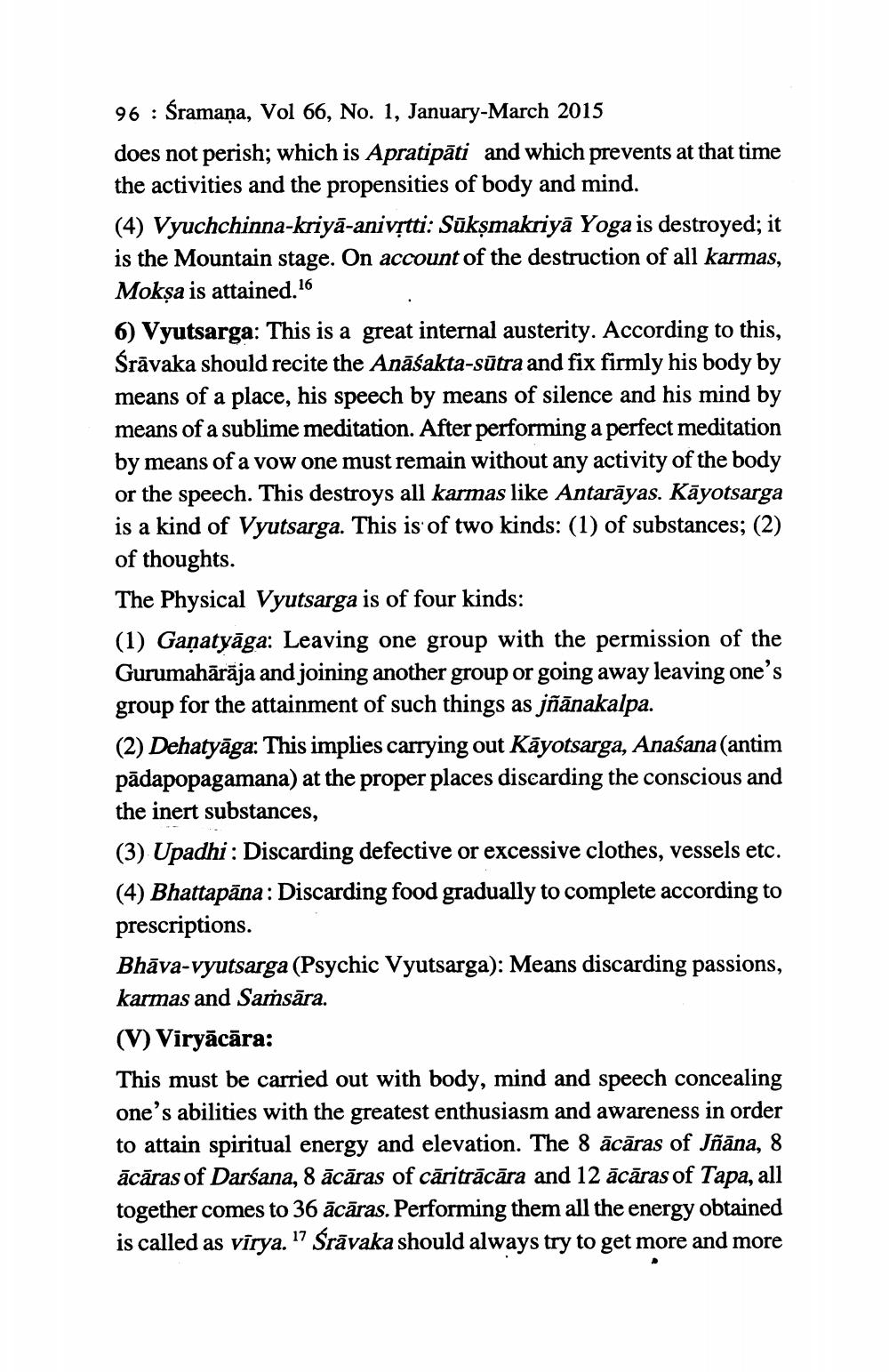________________
96: Śramaṇa, Vol 66, No. 1, January-March 2015
does not perish; which is Apratipāti and which prevents at that time the activities and the propensities of body and mind.
(4) Vyuchchinna-kriyā-anivṛtti: Sūkṣmakriyā Yoga is destroyed; it is the Mountain stage. On account of the destruction of all karmas, Mokṣa is attained.16
6) Vyutsarga: This is a great internal austerity. According to this, Śravaka should recite the Anāśakta-sūtra and fix firmly his body by means of a place, his speech by means of silence and his mind by means of a sublime meditation. After performing a perfect meditation by means of a vow one must remain without any activity of the body or the speech. This destroys all karmas like Antarāyas. Kāyotsarga is a kind of Vyutsarga. This is of two kinds: (1) of substances; (2) of thoughts.
The Physical Vyutsarga is of four kinds:
(1) Gaṇatyāga: Leaving one group with the permission of the Gurumahārāja and joining another group or going away leaving one's group for the attainment of such things as jñānakalpa.
(2) Dehatyaga: This implies carrying out Kayotsarga, Anaśana (antim pādapopagamana) at the proper places discarding the conscious and the inert substances,
(3) Upadhi: Discarding defective or excessive clothes, vessels etc. (4) Bhattapāna: Discarding food gradually to complete according to prescriptions.
Bhāva-vyutsarga (Psychic Vyutsarga): Means discarding passions, karmas and Samsara.
(V) Viryācāra:
This must be carried out with body, mind and speech concealing one's abilities with the greatest enthusiasm and awareness in order to attain spiritual energy and elevation. The 8 acaras of Jñāna, 8 ācāras of Darśana, 8 ācāras of caritrācāra and 12 ācāras of Tapa, all together comes to 36 ācāras. Performing them all the energy obtained is called as virya. " Śrāvaka should always try to get more and more
17




